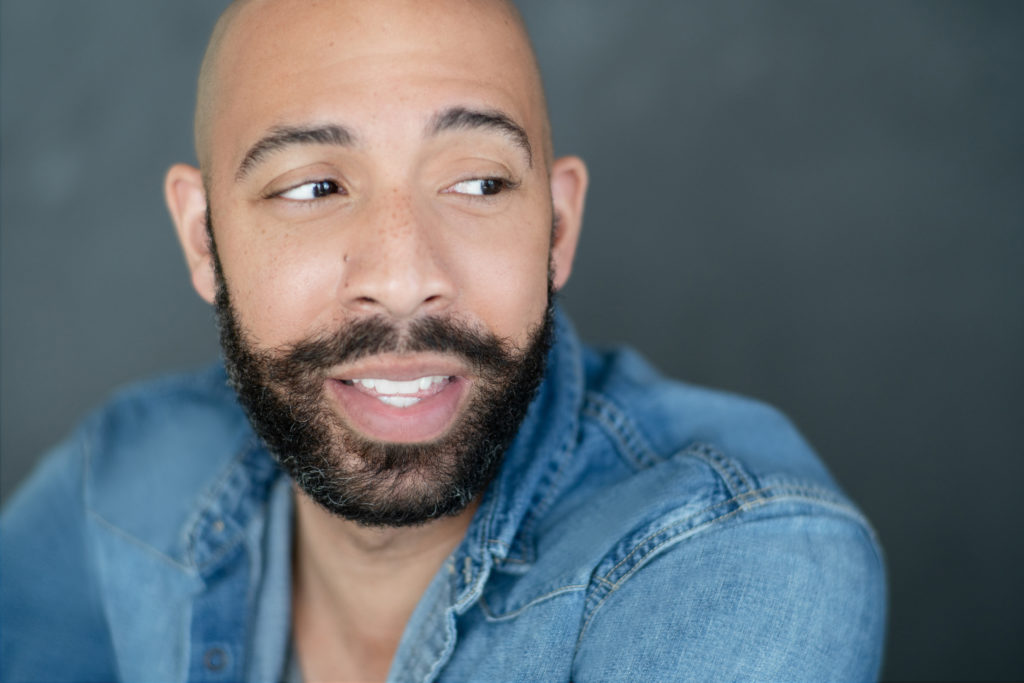
Damien Geter
By University Marketing
Feb 10, 2022
“I met and formed relationships with people that were some of the most important in my life,” Damien Geter (GR ’04) said when looking back on his experience at Indiana State.
The now-acclaimed opera singer and composer lives in Portland, Oregon serving as interim music director for Portland Opera. His performances have taken him around the United States and Austria. He’s sung at the Metropolitan Opera in New York and appeared in television shows like NBC’s Grimm and Netflix’s Trinkets. Geter now spends most of his time writing operas, but he says “all the information [he soaked] in at Indiana State led to where [he is] today.”
Geter’s start to graduate school was anything but smooth. His mother passed away a few years before he left his home state, Virginia, for Indiana State.
“I was a music education major applying for jobs, and I wasn’t having any luck getting a job. So, a mentor of mine, told me about this opportunity at Indiana State that was a conducting fellowship.”
Geter’s main instrument in college was the trumpet, but his full-ride fellowship, working as an assistant to Dr. John Boyd (p. 2020), allowed him to teach beginning courses in conducting. Geter got “quite a bit of podium time” for the wind ensemble.
Today, Geter meets people who were trained at major music conservatories, like Julliard, but he reflects on the impact his instructors had on him at Indiana State.
“People knew and revered Dr. Boyd,” Geter said. “My voice teacher, Thomas Potter, was singing all over the world, literally, and teaching as well. I’ve never heard a voice like that before in my life.”
He remembers feeling discouraged when an instructor encouraged voice lessons after hearing “an operatic potential” in his voice, but he obliged and it paid off.
According to his website, Geter’s “growing body of work includes chamber, vocal, and orchestral works … [which] infuses classical music with various styles from the Black diaspora to create music that furthers the cause for social justice.”

At that time, in Terre Haute during the early 2000s, Geter said he didn’t find much of a Black community. He did connect with one school of music professor, Dr. Finney, saying they shared a “mutual understanding.” He would often go to Dr. Finney’s studio “just to be,” Geter says.
He adds that, in general, the world of classical music is “super white,” and he had to learn how to navigate those pressures to stand out. Now, it’s something that gives him perspective.
“Part of my mission and philosophy of being a performer and composer is that I want Black folks to see me up there and think, ‘I can do that too.’”
After graduate school, Geter taught music for 15 years. Still, he would often leave work for a three-hour drive to Seattle to audition for musicals and “feed [his] spirit.”
Once the pandemic and the Black Lives Matter movement picked up, so did business. The market expanded to employ more Black composers, and online work became more accessible. Geter earned money writing operas and wrote a piece for Washington National Opera.
He reached out for an opportunity to sing at the Metropolitan Opera. He got the gig, singing for the same part he did for Porgy and Bess in Seattle.
“Once you sing at the Met, your status goes to a different level,” he said. “Being there and knowing the history of that place and the people who walk across that stage and walk in the halls. The space is just so big and everybody was so nice, which I was not expecting. I was expecting a lot of ego.”
Geter performed in 14 shows; all of them sold out.
“I gained the confidence [at Indiana State] that I needed to go out and do the thing. That’s what your teacher is supposed to do, right?” Geter said. “They give you the boost of confidence and let you know that you’re on the right track.”
Now, Geter’s time is consumed with work he loves. Many premieres and performances, postponed due to the pandemic, now will take place around the country this spring.
“[Indiana State] was a big part of my journey because everything I have learned in my musical education led me to this point.”

